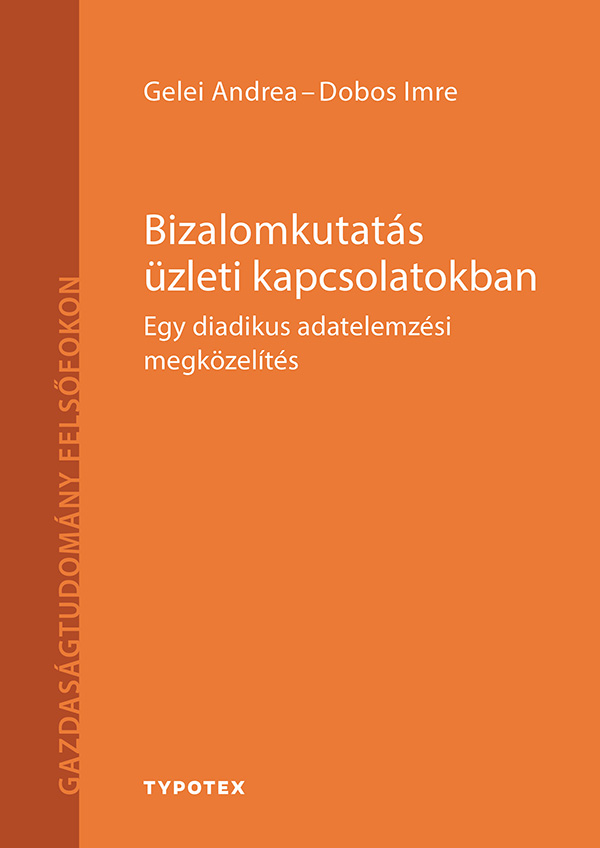László Á. Kóczy presented his paper Power and preferences (joint with Balázs Sziklai) at the PPE Conference on Social Choice and Voting Theory, hosted by the Kellog Centre for Philosophy, Politics and Economics, Virginia Tech on 17-19 June 2021.
Author: lkoczy
Kóczy @ CEMA2020-2021

László Á. Kóczy presented his paper Network Disruptions and the Security of Supply in the European Gas Network (joint with Dávid Csercsik and Balázs Sziklai) at the 2020/21 Conference of the Commodity and Energy Markets Association (virtually) at the Universidad Carlos III, 17-18 June 2021.
Kóczy’s paper in GEB

In the paper titled The equivalence of the minimal dominant set and the myopic stable set for coalition function form games (co-authored with P. Jean-Jacques Herings) published in Games and Economic Behavior, the equivalence of two dynamic cooperative game theoretic concepts, the minimal dominant set and the myopic stable set is studied and the modifications needed for equivalence are presented.
The paper is freely downloadable from the publisher’s site.
Számadó’s paper in Scientific Reports
The paper “Scarce and directly beneficial reputations support cooperation” by Szabolcs Számadó (joint with Flóra Samu and Károly Takács) has been published recently in Scientific Reports.
A human solution to the problem of cooperation is the maintenance of informal reputation hierarchies. Reputational information contributes to cooperation by providing guidelines about previous group-beneficial or free-rider behaviour in social dilemma interactions. How reputation information could be credible, however, remains a puzzle. We test two potential safeguards to ensure credibility: (i) reputation is a scarce resource and (ii) it is not earned for direct benefits. We test these solutions in a laboratory experiment in which participants played two-person Prisoner’s Dilemma games without partner selection, could observe some other interactions, and could communicate reputational information about possible opponents to each other. Reputational information clearly influenced cooperation decisions. Although cooperation was not sustained at a high level in any of the conditions, the possibility of exchanging third-party information was able to temporarily increase the level of strategic cooperation when reputation was a scarce resource and reputational scores were directly translated into monetary benefits. We found that competition for monetary rewards or unrestricted non-monetary reputational rewards helped the reputation system to be informative. Finally, we found that high reputational scores are reinforced further as they are rewarded with positive messages, and positive gossip was leading to higher reputations.
Publication awards for Imre Dobos
Imre Dobos received two publication awards from the Committee on Management Science (GTB) of Section IX of the Hungarian Academy of Sciences (HAS).

The committee grants awards in three categories: domestic Hungarian-language journal articles, international foreign-language journal articles and books. The Subcommittee on Management and Organizational Sciences of the GTB granted him the award in the books category for the publication of Trust research in business relations – A dyadic data analysis approach (In Hungarian; joint work with Andrea Gelei; Typotex Publishing House, Budapest, 2019).
Moreover, Imre received another award, granted by the GTB Subcommittee on Industrial and Business Economics in the category of foreign-language articles for publishing Inventory-related costs in green supplier selection problems with Data Envelopment Analysis (DEA) (joint with Vörösmarty, Gy.; International Journal of Production Economics, 209, 374-380.
Congratulations on his awards!
Job openings at QSMS
The QSMS Group will be present at the Job Market in Rotterdam with several openings: two plain research positions and two positions funded by Magyar Nemzeti Bank, the central bank of Hungary (one for Green Finance and one for Competitiveness and Sustainability in Emerging Economies). There is also an opening at the Faculty of Finance.
Kóczy @ 6th WS on Cooperative Game Theory in Business Practice
Kóczy is going to present his paper titled “The geopolitical impact of Nord Stream 2“, a joint work with Balázs R. Sziklai and Dávid Csercsik at the 6th Workshop on Cooperative Game Theory in Business Practice organised at the Leipzig Graduate School of Management.
Kóczy & Somogyi at the Conference on Economic Design
László Á. Kóczy will present “Apportionment methods in resource allocation”, a joint work with QSMS-member Tamás Koltai, Balázs R. Sziklai and Alexandra Tamás. Róbert Somogyi will present his paper “Bertrand-Edgeworth Competition with Capacity Uncertainty” coauthored with Wouter Vergote (Columbia University).
The Conference on Economic Design is the biannual conference of the Society for Economic Design and is organised in alternated years with the conference of the Society of Social Choice and Welfare. This year the conference is organised in Budapest by Péter Biró (OC Chair) and Lars Ehlers (PC Chair).
The Keynote Speakers are:
Leonid-Hurwicz Lecture: Philippe Jehiel (Paris School of Economics)
Murat Sertel Lecture: Bhaskar Dutta (University of Warwick)
Paul Kleindorfer Lecture: Bumin Yenmez (Boston College)
Kóczy’s paper in Energy Economics
 Regulated third party access (TPA) obliges the owner of an infrastructure, such as a natural gas pipeline to make it available for any user for a fee. If we want to model the European pipeline network with TPA, we must consider externalities. Kóczy’s paper titled “Modeling transfer profits as externalities in a cooperative game-theoretic model of natural gas networks” (joint with Dávid Csercsik, Franz Hubert and Balázs Sziklai) recently published in Energy Economics uses a simple partition function form game to model it. The paper is downloadable for free for 50 days.
Regulated third party access (TPA) obliges the owner of an infrastructure, such as a natural gas pipeline to make it available for any user for a fee. If we want to model the European pipeline network with TPA, we must consider externalities. Kóczy’s paper titled “Modeling transfer profits as externalities in a cooperative game-theoretic model of natural gas networks” (joint with Dávid Csercsik, Franz Hubert and Balázs Sziklai) recently published in Energy Economics uses a simple partition function form game to model it. The paper is downloadable for free for 50 days.
13 Feb: Laura Kasper (QSMS Seminar)
 Presenting Full Farsighted Rationality at 12:15-13:30 in QA406. Continue reading “13 Feb: Laura Kasper (QSMS Seminar)”
Presenting Full Farsighted Rationality at 12:15-13:30 in QA406. Continue reading “13 Feb: Laura Kasper (QSMS Seminar)”
